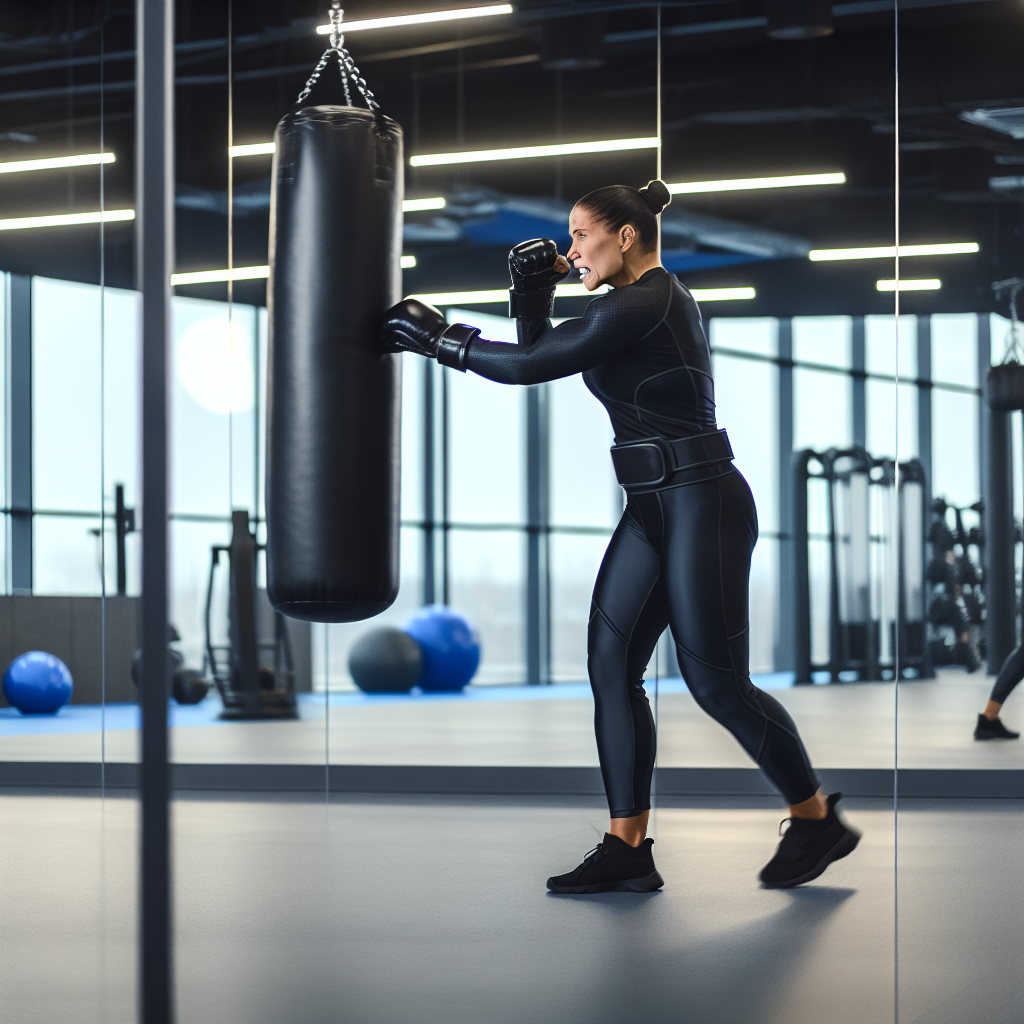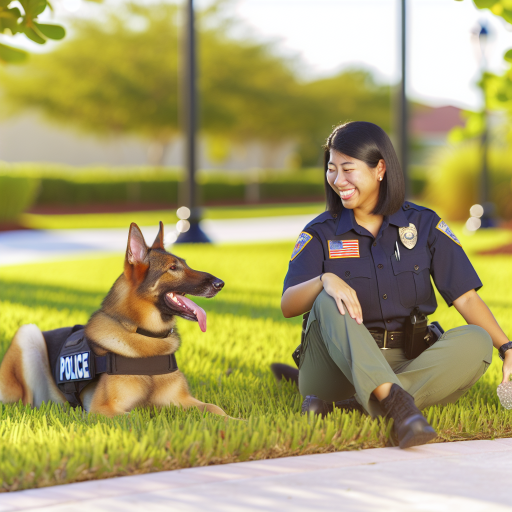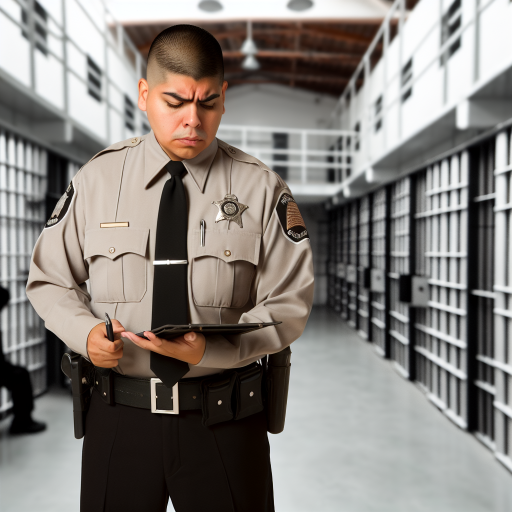Becoming a bodyguard is a crucial profession in today’s world.
Bodyguards play a vital role in ensuring the safety and security of individuals.
To succeed in this career, essential skills and training are necessary.
Importance of Bodyguards:
Bodyguards are responsible for protecting clients from potential threats and ensuring their well-being.
They are trained to assess risks and take proactive measures to prevent harm.
Essential Skills:
A bodyguard must possess excellent physical fitness, combat skills, and situational awareness.
Effective communication, strategic thinking, and decision-making are also essential skills for this role.
Training Needed:
Bodyguards undergo rigorous training in areas such as defensive tactics, emergency response, firearms proficiency, and threat assessment.
They also receive training in first aid and CPR to handle medical emergencies.
Professional Development:
Continuous learning and skill development are vital for bodyguards to stay updated on the latest security techniques and technologies.
Advanced training programs and certifications can enhance their expertise.
Building Relationships:
Developing strong relationships with clients and understanding their needs is crucial for a bodyguard.
Effective teamwork with other security personnel is also important in ensuring a comprehensive security plan.
Significance of the Bodyguard Role:
Becoming a successful bodyguard requires a combination of essential skills and specialized training.
Bodyguards play a critical role in safeguarding individuals and providing peace of mind in an unpredictable world.
Job Description:
A bodyguard is responsible for protecting clients and ensuring their safety at all times.
Their primary duty is to prevent harm from coming to their clients in any situation.
Being alert and proactive is crucial in order to anticipate and mitigate potential threats.
Role and Responsibilities:
- Acting as a physical deterrent by being present and visible to deter potential threats.
- Conducting thorough risk assessments to identify possible dangers and weaknesses in security.
- Planning and implementing security measures to address identified risks and vulnerabilities.
- Escorting clients to and from various locations, ensuring safe arrival and departure.
- Maintaining constant vigilance and awareness of surroundings to identify any suspicious activities.
Protecting Clients from Harm:
- Bodyguards must maintain a high level of situational awareness to identify and neutralize threats.
- They must possess the skills and physical ability to intervene and protect clients in dangerous situations.
- Utilizing defensive tactics and de-escalation techniques to diffuse potentially violent encounters.
- Being prepared to respond to emergencies and provide first aid or medical assistance when needed.
- Developing strong communication skills to effectively coordinate with clients and other security personnel.
Importance of Anticipating Threats:
- Anticipating potential threats allows bodyguards to act proactively rather than reactively.
- It enables them to prevent dangerous situations before they escalate and pose a risk to their clients.
- Being proactive also involves gathering intelligence and staying informed about any potential risks.
- Continuous training and development are essential to enhance skills and stay ahead of evolving threats.
- By being alert and proactive, bodyguards can provide a higher level of security and peace of mind for their clients.
The role of a bodyguard is vital in ensuring the safety and security of clients.
By being alert, proactive, and skilled in risk assessment and protection, bodyguards play a crucial role in safeguarding individuals from harm in a variety of situations.
Transform Your Career Today
Unlock a personalized career strategy that drives real results. Get tailored advice and a roadmap designed just for you.
Start NowEssential Skills:
In order to become a successful bodyguard, there are several key skills that are essential to develop and master.
Physical Fitness:
Being in top physical condition is crucial for a bodyguard as they often have to be able to react quickly and effectively in high-pressure situations.
This includes strength, endurance, and agility.
Self-Defense:
Bodyguards need to be proficient in various self-defense techniques in order to protect themselves and their clients from potential threats.
This includes martial arts training and hand-to-hand combat skills.
Communication:
Effective communication is key for a bodyguard to work successfully with their clients, other security personnel, and law enforcement agencies.
They need to be able to communicate clearly and assertively in any situation.
Staying Calm under Pressure:
Bodyguards often find themselves in high-stress situations, and the ability to stay calm and composed is essential.
Being able to think clearly and make quick decisions under pressure is a vital skill for a bodyguard.
Observational Skills:
Bodyguards need to have excellent observational skills in order to anticipate potential threats before they arise.
This includes being able to assess the environment, identify suspicious behavior, and react accordingly.
Attention to Detail:
Bodyguards must pay close attention to detail in order to ensure the safety and security of their clients.
This includes being vigilant about their surroundings, spotting any potential risks, and taking proactive measures to mitigate them.
By developing and honing these essential skills, aspiring bodyguards can increase their chances of success in this challenging and rewarding profession.
Discover More: Advancing Your Career as a Public Safety Officer
Physical Fitness
Being physically fit and healthy is crucial for bodyguards as it directly impacts their ability to perform their job effectively.
- Strength: Bodyguards need to have sufficient upper and lower body strength to handle potentially dangerous situations.
- Endurance: Endurance is essential for bodyguards as they may need to stand or move for long periods of time.
- Agility: Agility is key for bodyguards to react quickly and navigate through challenging environments.
Regular exercise and training are necessary to maintain peak fitness levels required for the demanding nature of the job.
Bodyguards should focus on a combination of cardiovascular exercises, strength training, and flexibility exercises to stay in top shape.
- Cardiovascular Exercises: Running, swimming, or cycling can help improve endurance and overall cardiovascular health.
- Strength Training: Weightlifting and bodyweight exercises can build muscle strength and improve physical resilience.
- Flexibility Exercises: Yoga or stretching routines can enhance agility and prevent injuries during active protection duties.
Consistent training not only improves physical abilities but also boosts mental alertness and overall well-being.
Showcase Your Business Today
Reach thousands of readers actively exploring professional services. Publish your business profile and grow your audience now.
Publish NowBodyguards must also focus on maintaining a balanced diet to fuel their bodies for optimal performance during high-stress situations.
By prioritizing physical fitness and adopting a holistic approach to health, bodyguards can excel in their role and ensure the safety of their clients.
Discover More: Security Consultant Career Advancement Tips
Self-Defense Training:
Bodyguards are trained in a variety of self-defense techniques and tactics to ensure the safety of their clients.
- Basic striking and blocking techniques: Bodyguards are taught how to effectively strike and block incoming attacks.
- Disarming techniques: Bodyguards learn how to disarm an assailant who may be armed with a weapon.
- Ground fighting techniques: This involves learning how to defend oneself while on the ground, which is crucial in close combat situations.
Mastering these skills is essential for bodyguards as they often find themselves in potential dangerous situations where they need to protect themselves and their clients.
Being able to neutralize threats quickly and efficiently can mean the difference between life and death in critical moments.
In addition to physical self-defense techniques, bodyguards also need to be well-versed in verbal de-escalation tactics to diffuse potentially dangerous situations without resorting to violence.
There are various martial arts and combat training programs available for aspiring bodyguards to enhance their self-defense skills.
- Krav Maga: Known for its focus on real-world situations and efficiency in neutralizing threats.
- Brazilian Jiu-Jitsu: Effective for ground fighting and grappling, which can be crucial in close encounters.
- Boxing and Muay Thai: These striking martial arts teach bodyguards how to effectively utilize punches, kicks, and elbows in combat situations.
Ultimately, mastering self-defense skills is vital for bodyguards to ensure the safety and security of themselves and their clients in any given situation.
Gain More Insights: How to Become a Wildland Firefighter
Communication Skills:
- Strong communication skills are crucial in the field of bodyguarding.
- Bodyguards must effectively communicate with clients, team members, and potential threats.
- It is essential to de-escalate conflicts using verbal de-escalation techniques.
Communication skills are an essential aspect of being a successful bodyguard.
The ability to communicate effectively can make all the difference in ensuring the safety and security of clients.
Bodyguards must be able to convey information clearly and concisely, whether they are speaking to their clients, coordinating with team members, or assessing potential threats.
When it comes to interacting with clients, bodyguards need to establish a strong line of communication to understand the clients’ needs and concerns.
Building trust and rapport through effective communication is key to a successful working relationship.
Clients should feel comfortable expressing their preferences and concerns to their bodyguards, and vice versa.
Teamwork is another crucial aspect of the bodyguarding profession, and effective communication plays a significant role in ensuring smooth collaboration among team members.
Bodyguards need to communicate clearly and efficiently with their colleagues to coordinate movements, share information, and respond swiftly to any potential threats or emergencies.
Moreover, being able to communicate with potential threats in a firm and assertive manner is essential for de-escalating conflicts.
Verbal de-escalation techniques, such as using calming language and maintaining a confident demeanor, can help diffuse tense situations and prevent violence from escalating.
Bodyguards must have the communication skills and emotional intelligence to handle confrontations tactfully and professionally.
Strong communication skills are indispensable for bodyguards.
Whether it’s establishing rapport with clients, coordinating with team members, or handling potential threats, effective communication is essential for maintaining safety and security in the field of bodyguarding.
You Might Also Like: Campus Security Officer: Collaborating with Faculty

Education and Training:
Minimum requirement: high school diploma or GED.
Various training programs and certifications available for aspiring bodyguards.
Continuing education is crucial for staying updated on security techniques and best practices.
- Minimum requirement: high school diploma or GED.
- Various training programs and certifications available for aspiring bodyguards.
- Continuing education is crucial for staying updated on security techniques and best practices.
Experience
When it comes to becoming a bodyguard, gaining experience in related fields is incredibly valuable.
The skills and knowledge acquired in areas such as law enforcement or military service can be directly applicable to the role of a bodyguard.
Individuals with backgrounds in these fields often possess the discipline, physical fitness, and tactical know-how necessary to excel in the security industry.
- By working in law enforcement or the military, aspiring bodyguards can develop strong situational awareness and quick decision-making skills.
- Experience in these fields also provides exposure to high-pressure situations, which can help individuals remain calm under stress.
- Having a background in law enforcement or the military can also lend credibility and respect within the security industry, as it demonstrates a commitment to serving and protecting others.
Another avenue for gaining experience as a bodyguard is through internships or apprenticeships with experienced professionals or reputable security firms.
These opportunities allow individuals to learn directly from seasoned experts, gaining valuable insights and mentoring along the way.
- Internships and apprenticeships provide hands-on experience in the field, allowing aspiring bodyguards to apply their knowledge in practical settings.
- Mentorship from experienced bodyguards can help individuals navigate the complexities of the job and avoid common pitfalls.
- Working closely with seasoned professionals also helps aspiring bodyguards establish a strong professional network within the security industry.
Building a strong professional network is essential for success in the security industry.
Networking with other bodyguards, security professionals, and industry leaders can open up opportunities for collaboration, career advancement, and learning.
- Networking allows bodyguards to stay updated on industry trends, best practices, and new technologies.
- By connecting with a diverse range of professionals in the security industry, bodyguards can access a wealth of knowledge and expertise.
- A strong network can also provide support, guidance, and mentorship, helping bodyguards navigate challenges and achieve their goals.
Essential Skills for Becoming a Bodyguard
As a bodyguard, physical fitness is crucial to handle any situation.
Training Requirements
Training in defensive tactics, firearms, and emergency medical response is essential.
Mental Preparedness
Being able to assess threats, remain calm under pressure, and adapt to changing environments is key.
Communication Skills
Effective communication with clients and colleagues is vital for success in the field.
Observation and Surveillance
The ability to detect suspicious behavior and potential threats is a fundamental skill.
Conflict Resolution
De-escalation techniques and conflict resolution skills are important in diffusing volatile situations.
Showcase Your Business Today
Reach thousands of readers actively exploring professional services. Publish your business profile and grow your audience now.
Publish NowContinuous Learning
Staying up to date on current security trends and technologies is crucial for professional growth.
Becoming a Successful Bodyguard
Becoming a successful bodyguard requires a combination of physical fitness, training, mental preparedness, communication skills, observation, conflict resolution, and continuous learning.
Acquiring these essential skills and training is vital for anyone considering a career in bodyguarding.
It is a rewarding profession that allows individuals to protect and serve others.
If you have a passion for protecting others, consider pursuing a career in bodyguarding.
Additional Resources
Global Risk Solutions | Close Protection Vs Bodyguard
What are the skills (both soft and hard) that every close protection …
[E-Books for Sale]
The Big Book of 500 High-Paying Jobs in America: Unlock Your Earning Potential
$19.99 • 500 High-Paying Jobs • 330 pages
Explore 500 high-paying jobs in America and learn how to boost your career, earn more, and achieve success!
See All 500 High-Paying Jobs of this E-Book
1001 Professions Without a Degree: High-Paying American Jobs You Can Start Now
$19.99 • 1001 Professions Without a Degree • 174 pages
Discover 1001 high-paying jobs without a degree! Unlock career tips, skills, and success strategies for just $19.99!




